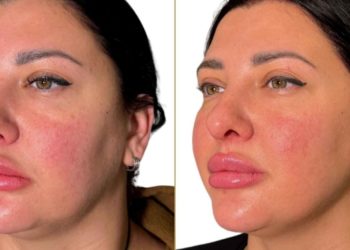The Importance of First Aid
One of the most empowering skills we can acquire is the ability to administer first aid. With the potential to save lives in critical situations, first aid knowledge isn’t a luxury—it’s a necessity. This fundamental principle doesn’t just apply to health professionals, but to everyone, regardless of their profession or lifestyle. More people learning first aid can result in a safer world.
Whether it’s a minor accident at home or a severe injury at a remote location, prompt and correct first aid can make a difference between life and death. The concept of “Manchester first aid”, promoting first aid education in a major UK city, embodies the broader global goal: prioritising safety and preparedness for everyone, everywhere.
First Aid: A Pillar of Public Health
First aid, a key component of public health, focuses on immediate intervention during health emergencies. According to the British Red Cross, a lack of first aid knowledge leads to thousands of unnecessary deaths annually.
It’s not just about life-threatening situations, though. Learning first aid equips individuals to handle minor injuries, reducing the strain on health services. With more people competent in first aid, we can free up resources for more severe cases, ultimately improving public health outcomes.
Embracing Manchester First Aid
The term Manchester first aid represents a larger initiative underway in the UK, aiming to ensure every individual acquires basic first aid knowledge. Manchester, like many cities, is bustling with activity. With a busy city comes a higher potential for accidents.
Manchester’s first aid initiative, which includes first-aid training workshops and awareness campaigns, has been instrumental in ensuring public readiness for emergencies. The rest of the world can learn from such initiatives, adopting them in their local communities to make the world a safer place.
The Road to Safety: Learning First Aid
Learning first aid can be an easy, flexible, and rewarding process. Here are some ways you can begin:
Online Courses
Many organisations, like St John Ambulance and British Red Cross, offer online first aid training. These courses are often divided into bite-sized sections, allowing learners to proceed at their own pace. They cover various topics, from CPR to managing burns and fractures.
In-person Workshops
While online courses provide theoretical knowledge, in-person workshops offer practical, hands-on experience. Trainers guide participants through realistic scenarios, improving their confidence in administering first aid.
School Curriculum
Incorporating first aid into the school curriculum can help students develop crucial skills from a young age. The UK Department of Education has made it mandatory for secondary schools to teach basic first aid and CPR. This proactive approach encourages a culture of safety and readiness among the younger generation.
Spreading Awareness: A Community Responsibility
While individual learning is vital, spreading awareness about first aid is a community responsibility. Here are ways we can encourage a safety-first culture:
Public Campaigns
Public campaigns raise awareness about the importance of first aid. These campaigns can be run in collaboration with local governments, non-profit organisations, or corporates, utilising various media outlets for maximum reach.
Workplace Training
Workplaces can hold regular first aid training for their employees, ensuring a safe working environment. These sessions can include role-playing exercises and drills, helping employees respond effectively during emergencies.
Social Media
With its widespread reach, social media is a powerful tool for spreading first aid awareness. Shareable content like infographics and short videos can make learning engaging and accessible to a broader audience.
Empowering Individuals: First Aid Certification
While knowledge of basic first aid is essential, formal certification in first aid can offer a deeper understanding and ability to manage more complex situations. By undertaking a certified course, individuals can gain not just practical skills, but also the confidence to apply those skills effectively when the need arises.
The certification process typically includes in-depth training on a range of topics, from cardiopulmonary resuscitation (CPR) and automated external defibrillator (AED) usage to wound dressing and fracture management. The certification, usually valid for a few years, demonstrates a certain level of proficiency and commitment to safety. Employers, in particular, value this certification, as it contributes to a safer workplace environment.
The Bigger Picture: First Aid for a Global Community
Beyond individual and community safety, first aid plays a pivotal role in global health. With international travel being commonplace, accidents or medical emergencies can occur anywhere, anytime. The presence of first aid-trained individuals in such circumstances can be life-saving.
Moreover, during times of natural disasters or humanitarian crises, first aid knowledge becomes particularly vital. These situations often strain healthcare services, making the role of trained laypeople crucial. Therefore, first aid training isn’t just a local issue—it’s a global one. Promoting first aid education worldwide can enhance our collective ability to respond to emergencies, fostering a truly global culture of safety and preparedness.
The Final Word: Safety Matters
First aid knowledge is integral to building a safer world. Manchester’s initiative is a shining example of a community taking proactive steps towards this goal. When we equip ourselves with the skills to respond in emergencies, we don’t just protect ourselves—we contribute to the safety of our loved ones, our communities, and ultimately, our world.
Remember, in the world of safety, first aid isn’t just a skill; it’s a lifeline. As we embrace the mantra of “safety matters”, let’s make learning first aid our priority. It’s time for us to join hands, step forward, and contribute to a safer, more secure world.
David Prior
David Prior is the editor of Today News, responsible for the overall editorial strategy. He is an NCTJ-qualified journalist with over 20 years’ experience, and is also editor of the award-winning hyperlocal news title Altrincham Today. His LinkedIn profile is here.













































































